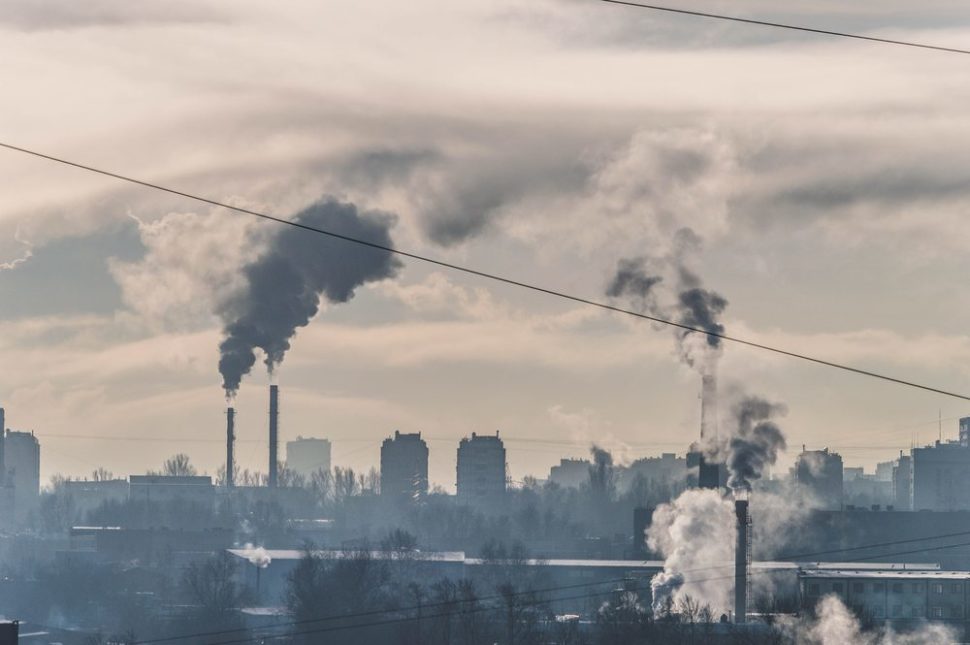With nine million deaths worldwide, environmental pollution kills three times more than AIDS and fifteen times more than war and violence.
In 2013, according to figures from the World Bank, diseases caused by air pollution (cardiovascular diseases, lung cancer, chronic lung diseases, respiratory infections) caused the premature death of 2.9 million people worldwide.
The tally of air pollution goes even higher (to 5.5 million deaths) after factoring in deaths resulting from home pollution linked to the use of solid fuels like wood and coal for heating and cooking.
If these figures are alarming to you, just wait until they are compared to other causes of death.
Polluters Vary but Death is the Same
In 2015, one in six deaths worldwide was attributable to environmental pollution (air, water, and soil), says a report published in the British The Lancet medical journal.
The two-year study, conducted by the Lancet Commission on pollution and health that includes several international organizations, NGOs, and dozens of health and environment specialists, is the first to assess the impact of all types of environmental pollution on human health.
The Lancet Commission pulled data from the Global Burden of Disease (GBD) Study from the Institute for Health Metrics and Evaluation (IHME), an independent research institute at the University of Washington.
Pollution kills 15 times more than war and violence.Click To TweetAccounting for 16% of global premature deaths (9 million) in 2015, pollution, says the report “is the largest environmental cause of disease and premature death in the world today.”

Diseases caused by pollution kill 15 times more than wars and all other forms of violence, and three times more than AIDS, tuberculosis, and malaria combined, statistics from the study suggest.
For comparison, a WHO study in the early 2000s found that all violence-related deaths in the world were around 1.6 million.
Pollution affects air, water, and soil, with each claiming its share of lives.
Air pollution (both indoor and outdoor) is associated with the largest number of deaths, totaling 6 million deaths annually, mainly through chronic diseases such as heart disease, stroke, lung cancer, and COPD (chronic obstructive pulmonary disease).
Water pollution comes in second with 1.8 million deaths, and, third, work-related pollution with 800,000 deaths.
10 Highest pollution-related deaths by country (by % of all fatalities)
- India: 2,515,518 (24.5%)
- China: 1,838,251 (19.5%)
- Pakistan: 311,189 (21.9%)
- Bangladesh: 260,836 (26.6%)
- Nigeria: 257,093 (18.7%)
- Indonesia: 211,896 (13.5%)
- Russia: 172,536 (8.6%)
- United States: 155,155 (5.7%)
- Ethiopia: 129,450 (19.1%)
- DRC: 123,942 (18%)
The ‘Great existential challenge’ of Pollution
“Pollution is one of the great existential challenges of the human-dominated Anthropocene era,” said the authors of the report. “Pollution endangers the stability of the Earth’s support systems and threatens the continuing survival of human societies.”
While pollution touches the whole world (pollution-related deaths map), it primarily affects “the poor and vulnerable,” notes the report, with the vast majority of pollution-related deaths, about 92%, occur in low and middle-income countries.
In these countries, minorities and marginalized populations are even more exposed to the negative impact of pollution.
In some countries that are currently experiencing rapid industrialization, such as India, China, Pakistan and Bangladesh, the proportion of deaths attributable to pollution is an even one in four.
The Lancet also assessed the economic cost of environmental pollution: more than $4.6 trillion USD a year, the equivalent to over 6% of the gross world product.
“Those costs are so massive they can drag down the economy of countries that are trying to get ahead,” said Prof Philip Landrigan, co-leader of the Lancet Commission. “We always hear ‘we can’t afford to clean up pollution’ – I say we can’t afford not to clean it up.”


















I was extremely short of breath due to my Emphysema, I was introduced to VineHealth Center and their COPD Herbal Protocol. I started on the COPD Treatment last year, my symptoms gradually diminished including my shortness of breath, wheezing and fatigue. Reach the m at vinehealthcenter. c om….. I am Emphysema free…